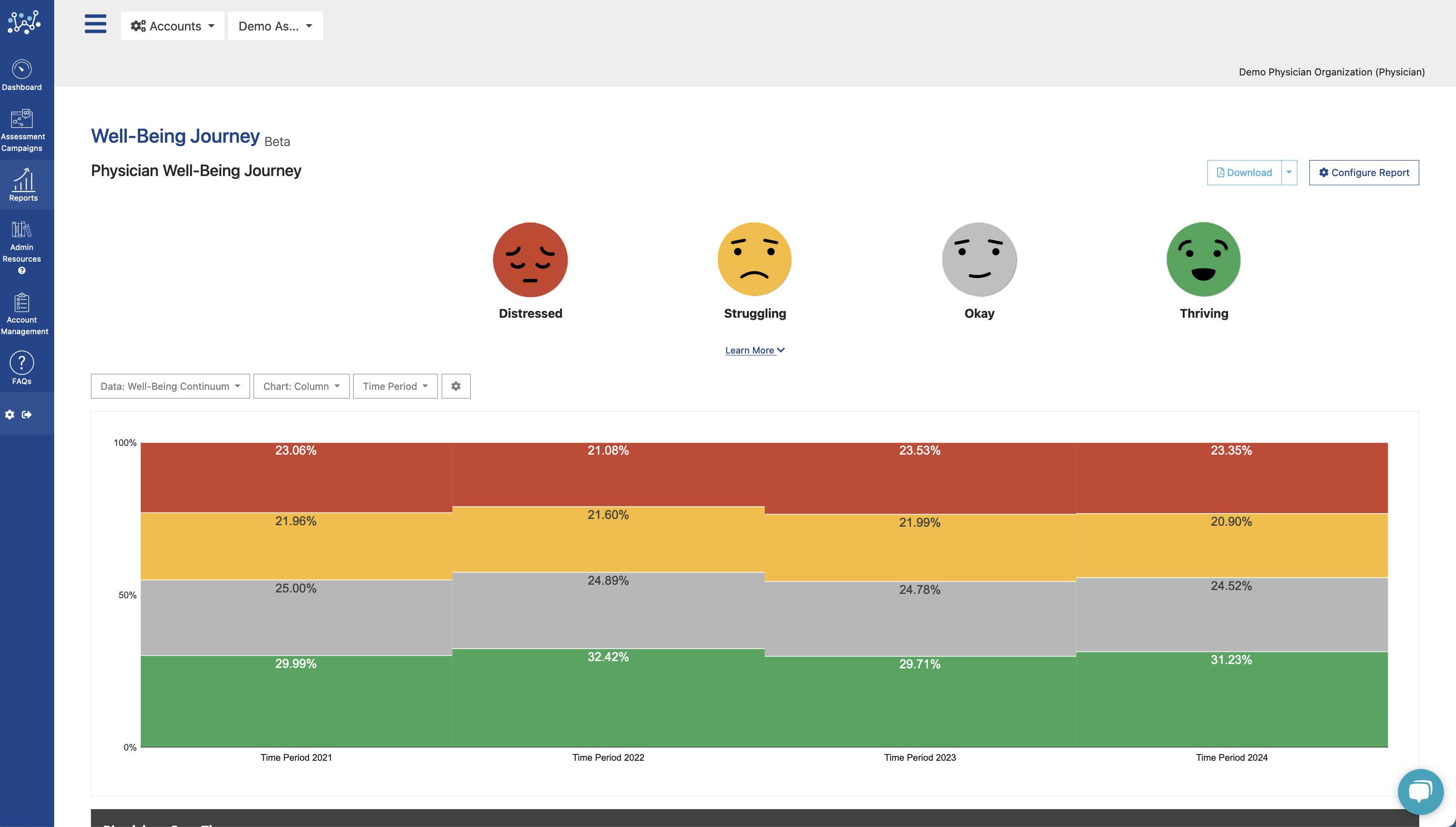Medical residents and fellows spend years in training to learn and practice specialized fields in medicine, and with such intense training comes several responsibilities. These responsibilities can easily become overwhelming and transform into resident and fellow burnout if not managed correctly. In fact, a 2017 ScienceDirect review of burnout in pediatric residency revealed that burnout has adverse implications for pediatric residents and about half of pediatric residents experience burnout.

If medical resident or fellow burnout is not addressed early on, there is more at risk than underperformance. Unchecked burnout can result in lower patient satisfaction, higher medical errors and poor patient care.
[RELATED: Learn everything you need to know about Resident and Fellow Well-Being]
Medical resident and fellow burnout carries serious consequences because of its links to depression and suicide among medical residents, which is the second leading cause for medical resident death. This is why it’s crucial to recognize the signs of resident and fellow burnout. Here are some warning signs to consider and some intervention tactics to combat burnout:
Fatigue
Sleep deprivation, fatigue, and burnout work together in a vicious cycle. Since fatigue is a common symptom of burnout for residents and fellows, it’s important to catch early. If left unaddressed, fatigue can lead to critical mistakes on the job.
Lack of Emotional Connection
If you’re having a hard time experiencing sympathy or empathy for patients, or you have an overall lack of emotional connection with your patients, then it’s possible that you’re experiencing burnout.
Self-Medicating With Alcohol or Substance
Having a glass of wine to unwind after a long day at work may not be detrimental. But when significant amounts of alcohol are being consumed or mixed with other substances to deal with daily stress, help is overdue.
Self-medicating is never the answer to addressing burnout as it can easily lead to detrimental consequences, including overdose or death. It’s crucial to take notice of patterns of substance and alcohol abuse before it becomes too late.
How to Remedy Burnout
If you start to see symptoms of burnout in yourself or your institution, there are several ways to confront the problem. Here are some tips on dealing with resident or fellow burnout:
- Leverage mindfulness training. Mental health is at the cornerstone of remedying medical resident and fellow burnout. It’s important to focus on your mind as you complete your residency and fellowship training. You can take advantage of mindfulness training to help prevent and manage burnout by leveraging techniques for coping. Burnout can also be reduced with training program social support, including interventions, mentoring and wellness programs for mental health.
- Reduce stress at work. Stress is a consistent factor during any residency or fellowship, but you can take measures to reduce it. Consider delegating duties that you don’t have to complete, such as repetitive administration tasks.
- Implement self-care. Practice good eating habits and get enough sleep. Exercise and set time aside for relaxation.
- Surround yourself with the right people. If you’re struggling with substance abuse or are easily tempted to pick up a bottle to reduce your stress, it’s important to surround yourself with the right people who can help you stay in check with reality and your habits. Consider a group of friends who are responsible and will provide support without being judgmental.
Final Thoughts
Recognizing the warning signs of burnout in residents and fellows is crucial to getting to the root of the problem. Take action by having a plan to remedy burnout. The Resident and Fellow Well-Being Index is an exceptional way to accurately and anonymously self-assess burnout and stress levels. Implementing the Well-Being Index into your institution’s wellness plan can help to unearth the problem, then track progress. By taking these steps and implementing a wellness plan, you can keep resident and fellow burnout at bay.







